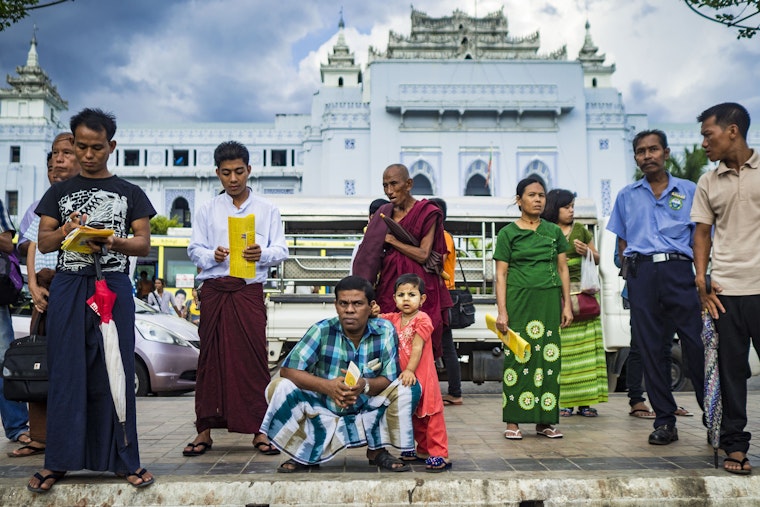After Burma Voting This Weekend, Winners Could Be Frozen Out of Power
By Jerry Fowler Jr.

On a trip to Burma last year, I asked a group at the Yangon School of Political Science what they considered the biggest challenges facing their country. One young man captured the frustrations and anxieties of a society struggling to emerge from half a century of suffocating military rule.
“The biggest problem in this country,” he said, “is that the people don’t trust the government and the government doesn’t trust the people.”
Social trust is at issue when Burmese head to the polls on November 8. The last broadly contested national election was in 1990. After the opposition party, the National League for Democracy (NLD), won a sweeping victory, the military ignored the results and cracked down on its opponents, ushering in two more decades of dictatorship.
The NLD, led by Nobel laureate Aung San Suu Kyi, is once again on the ballot. The ruling Union Solidarity and Development Party (USDP), created by the military and led by ex-generals, as well as scores of smaller parties, many of which are based on ethnic identity, are also running.
The military says that it will respect the results, whatever they are. Of course, it said that before the 1990 elections, too. This time, however, it may be serious, if only because the generals pushed through a new constitution in 2008 that protects their power and privilege no matter the outcome of the voting. The military does not, in other words, need to trust the people.
For example, only 75 percent of parliament seats are at stake in the election. The other 25 percent are reserved for the military. No matter who forms the next government, the constitution lets the military’s top general appoint the heads of the powerful defense, home, and border affairs ministries. And the military is not subject to civilian control.
It is not clear how free the voting on November 8 will be, given such concerns as inaccurate voting lists, allegations of vote buying and use of state resources for electioneering purposes by the USDP, and the disenfranchisement of the entire Rohingya minority. But even if it goes smoothly, and most Burmese are able to cast their votes and have them counted, the layers of unfairness built into the system guarantee that progress toward greater democracy will be incremental at best.
An important test of whether this electoral process will contribute to building social trust will come early next year when a new president is elected. Another layer of control that the military constructed was having parliament—where the military enjoys its guaranteed 25 percent—choose the president instead of the people.
As a practical matter, this means that a military-backed candidate could win the presidency with the support of no more than one-third of parliament’s elected representatives. The NLD, widely expected to do well in the voting, could, in effect, “win” the election, but be frozen out of access to any real power. Such a result would hardly increase the people’s trust in the government.
Given parliament’s role in electing the president (and two vice-presidents), the months after the November 8 election likely will see negotiations among the political parties and the military. The ultimate outcome is up to the Burmese themselves. But international friends of Burma can emphasize that respecting the election results and enhancing social trust—in short, democratic legitimacy—mean electing a president who enjoys the support of a majority of parliament’s elected representatives.
The United States, in particular, should make clear to the military and its allies that further normalization of relations between the two countries will not be possible if the new government does not have democratic legitimacy, which can only come from reflecting the choices that the Burmese people make on November 8.
Until January 2020, Jerry Fowler Jr. was the senior policy analyst for multilateral affairs at the Open Society Foundations.